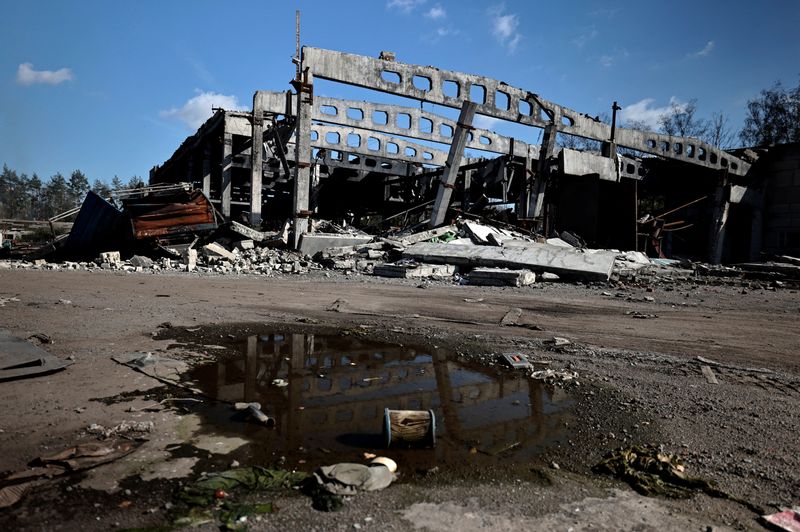(Reuters) - Ukraine's State Security Service (SBU) said it has launched a criminal investigation into Andrei Ruzinsky, a Russian commander Reuters identified last year as helping lead the military occupation of eastern Ukraine.
Ruzinsky was commander of the Russian Baltic Fleet's 11th Army Corps, which crossed into Ukraine in early 2022 and took control of a chain of towns south of Kharkiv, Ukraine's second largest city.
The SBU said in a statement that it had served notice on Ruzinsky, who is on Russian soil, that he was suspected of entering into a conspiracy to conduct acts of military aggression.
It said he had ordered attacks using heavy weapons on populated areas, and that he had given orders to the military commandant in the town of Balakliia, where there were multiple cases of civilians being detained and tortured, according to Ukrainian officials and residents.
Russia withdrew from the area in September last year.
Reuters could not reach Ruzinsky through phone numbers listed for him. The Russian defence ministry did not immediately respond to a request for comment. The Kremlin has repeatedly denied reports that its troops committed war crimes or targeted civilians.
In a Special Report published last October, Reuters revealed how soldiers from the 11th Army Corps occupied the area around Balakliia, in the Kharkiv region in Ukraine's northeast.
The report, based on a cache of Russian military documents discovered in an abandoned command bunker, named Ruzinsky as being part of the chain of command overseeing the Russian force there.
In the same cache, Reuters also found four documents that identified Ruzinsky as commander of the Balakliia military grouping, in addition to his role as head of the 11th Army Corps.
The documents were a signed certificate congratulating a subordinate on his birthday, and three printed documents, bearing Ruzinsky's name and role at the top of the page, giving instructions on what radio call signs the Balakliia grouping should use.
Later last year, Ruzinsky handed over command of the Balakliia grouping to one of his subordinates, Colonel Ivan Popov, the documents showed.
In a separate article last month, Reuters identified the commandant who had been in charge of policing the civilian population during Russia's six-month occupation of Balakliia. The man, who went by the call sign of "Granit," is Valery Buslov, a Russian military policeman with the Baltic Fleet.
Following Reuters' report, the SBU announced this month that Buslov had been notified of suspicion that he had violated the laws and customs of war. The agency said Buslov organised the "illegal detention of local residents" in Balakliia.

It said investigators found evidence he personally interrogated detainees and used "psychological and physical violence" against them, including threatening them with murder and the forced deportation of their relatives to Russia.
When Reuters reached Buslov by phone inside Russia last month by phone, he denied that he had been in Balakliia.